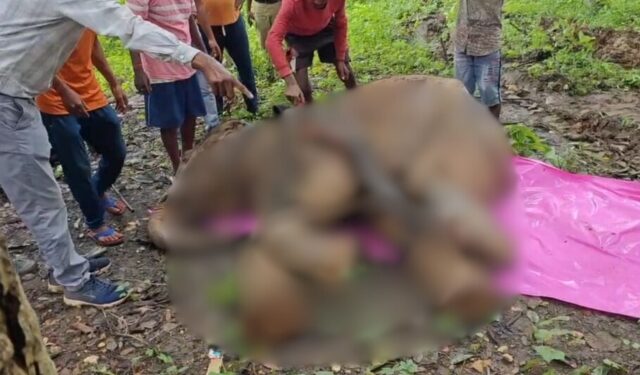In a heartbreaking incident, a baby elephant succumbed to injuries caused by an Improvised Explosive Device (IED) blast in the Saranda forest, straddling the Odisha-Jharkhand border near Rourkela and Chaibasa.
The calf, severely injured in its left hind leg, had been wandering the dense forest for nearly ten days before its condition deteriorated, leading to its death on the night of July 5, 2025.
The IED believed to have been planted by Maoists targeting security forces, detonated, causing critical injuries to the calf. The Jharkhand and Bisra Forest Departments tracked the animal using drone cameras and attempted to tranquillise and treat it. Despite their efforts, the calf’s condition worsened due to continuous blood loss and its inability to be relocated to a proper veterinary facility in time.
The forest departments had been working tirelessly to stabilize the calf, but the severity of the injury and logistical challenges proved insurmountable. Following the calf’s death, forest officials conducted a post-mortem in the Saranda forest before burial.
The incident highlights the devastating impact of Maoist activities on wildlife, with innocent animals becoming unintended victims of conflict. The Saranda forest, a critical habitat for elephants and other species, faces ongoing threats from such insurgent activities, raising concerns among conservationists about the safety of wildlife in the region.
Local authorities and wildlife experts are calling for stronger measures to curb the use of landmines in forested areas and to protect vulnerable ecosystems. The loss of the elephant calf serves as a stark reminder of the broader environmental and humanitarian challenges posed by insurgent violence in India’s forested regions.






























